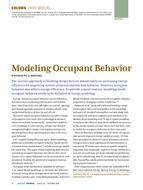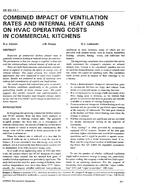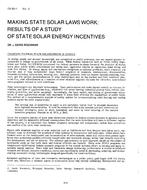Click here to purchase
Clean spaces are defined as areas in which particleconcentration and environmental conditions are controlled at or within specifiedlimits. Design of clean spaces (or cleanrooms) covers much more thantraditional control of air temperature and humidity. Additional factors mayinclude control of particle, microbial, electrostatic discharge (ESD),molecular, and gaseous contamination; airflow patterns; air pressurization;sound and vibration; environmental health; life safety; industrial engineeringaspects; and manufacturing equipment layouts. The objective of good cleanroomdesign is to maintain effective contamination control while ensuring requiredlevels of reliability, productivity, installation, and operating costs.TerminologyClean Spaces and Cleanroom ApplicationsAirborne Particles and Particle ControlAir Pattern ControlAirflow Direction Control Between Clean SpacesTesting Clean Air and Clean SpacesPharmaceutical and Biomanufacturing Clean SpacesStart-Up and Qualification of Pharmaceutical CleanroomsSemiconductor CleanroomsHigh-Bay CleanroomsEnvironmental SystemsSustainability and Energy ConservationNoise and Vibration ControlSpace Construction and OperationCleanroom Installation and Test ProceduresIntegration of Cleanroom Design and ConstructionLife and Property SafetyNo. of Pages: 33
Citation: 2019 ASHRAE Handbook¿¿¿HVAC Applications
Product Details
- Published:
- 2019
- Number of Pages:
- 33
- Units of Measure:
- Dual
- File Size:
- 1 file , 31 MB
- Product Code(s):
- D-A192019SI


